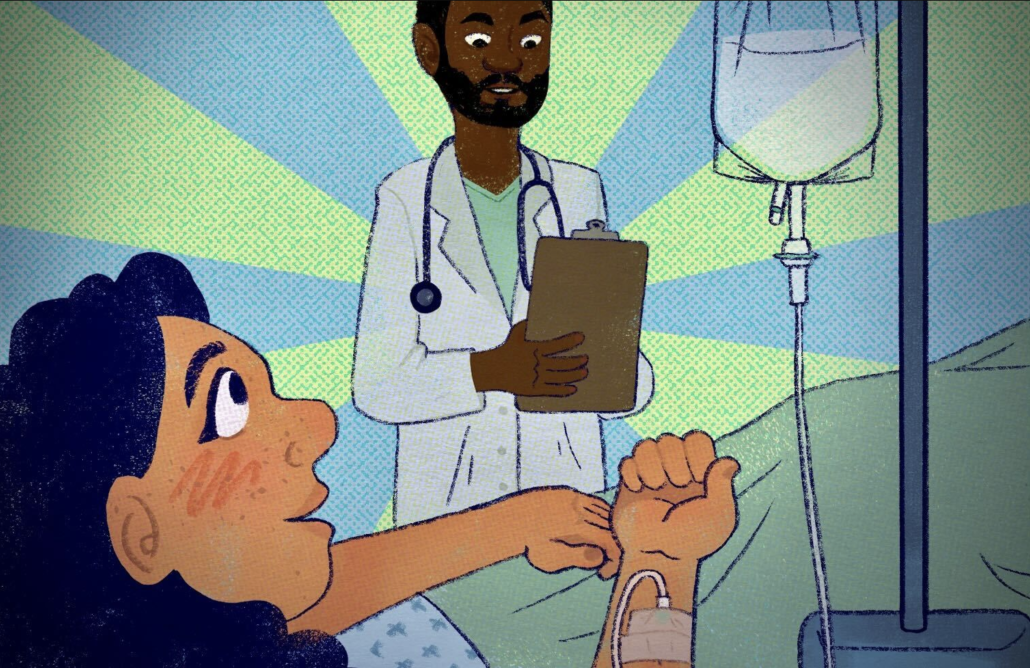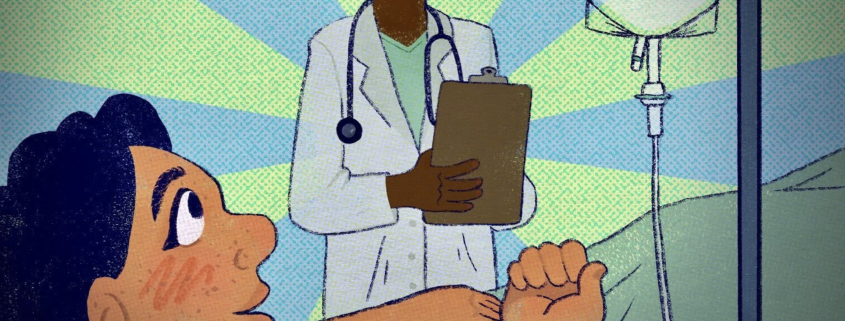Chronically Catherine: Sex tips from a disabled diva

Disabled people are sexy, want sex, have sex and are fucking great at it too — I’d know, I’m one of them. It’s Women’s History Month, so let’s consensually peel back the metaphorical panties behind the all-too-common misconception that disabled people aren’t sexual beings.
First off, I’m hot. It’s just a fact. But when I became chronically ill and disabled as a 21 year old, I lost a lot of self-confidence. When I was in so much pain and I hadn’t showered or shaved anywhere for weeks, I didn’t feel attractive. While grappling with the limitations of my new, chronically ill body and all its incurable diseases, suddenly the song, “Your Body Is a Wonderland,” became less of a romantically endearing John Mayer tune and more of a literal sexual identity crisis.
During this crisis, I felt like I was forced through a second pubescent sexual awakening. Instead of middle school level questions like “What if it hurts?” or “What’s that clear goop in my underwear?”, now, the questions had graduated to “How do I tell my partner in a sexy way that I can’t do that position because it exacerbates my chronic pain?” and “Will any of my medications affect my libido?”
Reclaiming my sexiness as a newly disabled woman meant breaking down a lot of my own internalized ableist and patriarchal ideas of beauty, which was a lonely trek because the conversation around disability and sex seems non-existent. For a while, that made me feel like having a disability made me inherently less sexy. Now that I’ve lived with my illnesses for four years, I’ve learned that is far from the truth, so I’m here to provide my sex wisdom.
My first and most important sex wisdom is a skill I refined as a result of having to take a two and a half year medical leave of absence during the pandemic. I was in no shape to start anything romantic or had any interest in sex, but I did have plenty of time to get to know my body. Getting to know my body so intimately as a result of my worsening health led to some ease in figuring out what felt good down there, what positions were most comfortable, what turns me on and what time of day I get horny. Ultimately, getting comfortable masturbating also meant overcoming the taboo that women don’t. These were all ways of getting to know my body’s limits before I could communicate them effectively and confidently to a partner.
The next tip comes from years of evolving into a fierce self advocate in the doctor’s office and in fighting insurance. Clear communication is everything — inside and outside of the bedroom. If it’s later in the evening and I’ve taken my sleepy time meds, nothing is going to happen after that, and I make that clear to my partner. If I have a migraine, I know the effort it takes to have sex will exacerbate it, so I’ll switch to a cozy morning rendezvous in the sheets the next morning while I recover the evening before. Ultimately, saying yes to the needs of my body before fulfilling the needs of a sexual partner, or anyone for that matter, is paramount.
Another tip is to utilize equipment — not dildos and vibrators, although those can be an incredible asset in sex with a disabled partner. I’m talking about shower chairs, pillows and ice packs, which were game-changers for me. Get dizzy in the shower? Sit in your shower chair, or use it to play with levels during a steamy encounter. Struggle with L4/L5 joint pain? Grab a pillow for under the knees or slide it up to the lower back for some supported missionary. Fibromyalgia making it painful to move your shoulders? Grab an ice pack for your traps or use it for some sensual temperature play. Overstimulated visual field by bright lights? Throw on a blindfold for some relief and turn it into a sexy sensory experience of touch.
There are other important factors to consider as a chronically ill or disabled person that occur outside the bedroom such as the influence of medications on pregnancy risk, and more, which require consulting a doctor. Then there’s the presence of caretakers — I remember at my sickest thinking, “Will I ever be well enough to live on my own and have privacy to be a young woman with sexual freedom?” Fortunately for me, I am now able to live independently, but, for example, wheelchair users may not be able to. However, that doesn’t mean wheelchair users are less sexual, it just requires forethought and planning, which isn’t unsexy.
While a lot of my tips apply to anyone getting freaky, the disabled sexual experience is unique and can teach us all how to be better sexual partners. Sexual health is a part of overall health and, in the end, disabled people want to have sex, too — don’t leave us out of the fun.
Writer’s note: Feel free to reach out to Chronically Catherine if you’re also a student with a disability working to coexist with daily adversity without losing sight of your fabulosity — [email protected] or @itschronicallycatherine on Instagram.
Catherine Ames is a senior writing about life as a young person coexisting with chronic illness in her column, “Chronically Catherine.”

